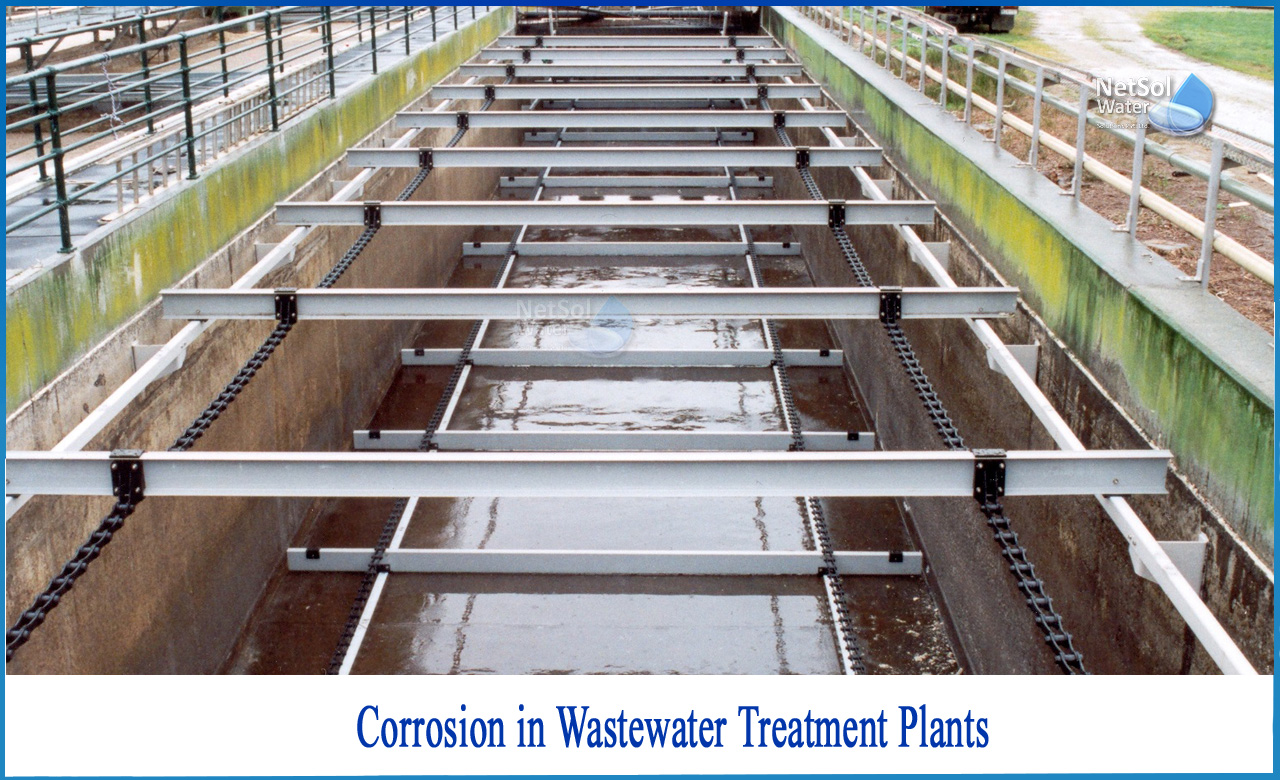How do you protect Wastewater Treatment Plants from corrosion?
Engineers and architects working on systems that must operate in severe settings have obstacles when developing treatment plants. To preserve equipment’s and materials, the designer must be aware of the impacts of temperature, humidity, and chemical activity, both liquid and gaseous, and account for them.
Concrete and steel are the most common materials used in treatment facilities, both of which may quickly decay if not properly protected in a hostile environment. Proper design and careful maintenance are the keys to success.
Corrosion is a very common problem!
Corrosion a?nd material erosion can occur in a wastewater treatment facility for a variety of reasons:
• When a metal is submerged in non-aerated water or a non-oxidizing acid, hydrogenation can occur.
• Corrosive chemicals include chlorine, a variety of acids and alkalis, and ferric chloride.
• Hydrogen sulphide (H2S) gas may damage metallic components directly (i.e. steel tanks, gratings and walkways, structural members and equipment).
• Anaerobic sulphate-reducing bacteria may eat away at metal and concrete's protective sulphate coats, leaving them exposed to Sulphuric acid corrosion caused by H2S oxidation.
• Fatigue corrosion causes cracking or breaking in practically all ductile metals. The capacity of metals to endure the effects of fatigue corrosion is reduced by corrosive circumstances. This restriction might be significantly decreased.
• Cavitation erosion is most commonly linked with pump impellers, although it may happen everywhere, when there are high liquid velocities and rapid, dramatic drops in fluid pressure.
• Filiform corrosion is a kind of corrosion that occurs on metal surfaces with organic coatings and is caused by pinpoint moisture penetration at many locations on the surface.
• Galvanic corrosion happens when two or more dissimilar metals are submerged in an electrolyte and generate an electrical current.
You can protect your equipment’s by coating them-
Specialized coatings can reduce or prevent corrosion, and typically employs two types: physical barrier coatings, which act as a barrier between the material to be protected and the environment, and sacrificial coatings, such as zinc and cadmium, which corrode preferentially and protect the primary base metal.
1: Metallic Coatings: Because zinc and cadmium have a larger electromotive force than steel, they can be employed to protect iron and steel cathodically or galvanically. The coatings corrode preferentially, protecting the main metal beneath the coating from being attacked.
2: Organic Coatings (Non-Metallic): Organic coatings act as a barrier between the surface and the environment. Synthetic resins are frequently employed to improve the coating's acid and alkali resistance.
3: Chemical Conversion Coatings: Chemical reactions between the coating and the base metal produce these coatings. Phosphate coatings and controlled oxidation coatings are two common examples.
Getting Rid of Corrosion
Simple solutions that can be adopted and maintained at a low cost are preferred by plant operators. Air conditioning is an excellent approach to protect and extend the life of temperature and humidity-sensitive equipment’s; yet, air conditioning components are particularly prone to corrosion.
The Take-Out
Simple practices, such as the use of galvanized ferrous metals, robust or high-performance coatings, and prudent protection of vital components, provide a cost-effective solution that can be easily incorporated into a water or wastewater plant's operations and maintenance programme, obviating the need for extreme corrosion protection for building elements and equipment’s in most cases.
Technical assistance and guidance
Netsol Water collaborates with a wide range of international organizations to tackle complicated problems by strategically integrating modern treatment technology with practical solutions.
Netsol Water is Greater Noida-based leading water & wastewater treatment plant manufacturer. We are industry's most demanding company based on client review and work quality. We are known as best commercial RO plant manufacturers, industrial RO plant manufacturer, sewage treatment plant manufacturer, Water Softener Plant Manufacturers and effluent treatment plant manufacturers. Apart from this 24x7 customer support is our USP. Call on +91-9650608473, or write us at enquiry@netsolwater.com for any support, inquiry or product-purchase related query.



